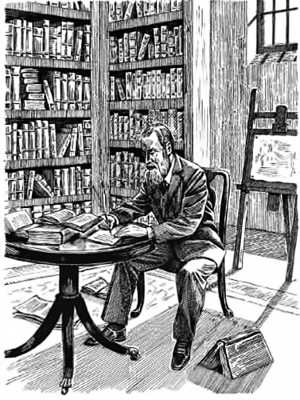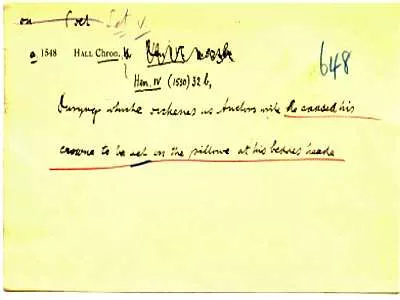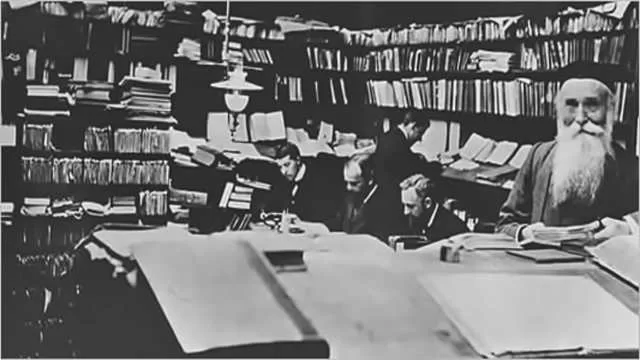The creation of the Oxford English Dictionary (OED) is one of the most remarkable literary achievements in history. This monumental task, which took decades to complete, was not just the work of professional lexicographers.
It also relied heavily on the contributions of ordinary people, who volunteered their time and effort to collect and submit quotations illustrating the various uses of English words. Among these volunteers was a man whose story is as tragic as it is extraordinary—Dr. William Chester Minor.
The Early Life of Dr. Minor
William Chester Minor was born in June 1834 on the island of Ceylon (modern-day Sri Lanka) to American missionaries. Raised in a strict religious environment, Minor was sent back to the United States at the age of 14 to pursue his education.
He attended Yale University, where he studied comparative anatomy, and in 1863, he graduated with a medical degree. A man of many talents, Minor was known for his love of painting, playing the flute, and his voracious reading habits.

However, Minor’s life took a dark turn when he joined the Union Army as a surgeon during the American Civil War. The brutal realities of war deeply affected him, particularly an incident during the Battle of the Wilderness in 1864.
Minor was ordered to brand a deserter on the face with the letter “D” for “deserter,” an event that reportedly haunted him for the rest of his life. This traumatic experience, coupled with the horrors of battlefield medicine, where infections and amputations were common, began to unravel his mental health.
A Descent into Madness
After the war, Minor’s behavior became increasingly erratic. He started drinking heavily, frequented brothels, and began to show signs of severe paranoia. He carried a revolver at all times, convinced that Irishmen were out to get him. His condition worsened, leading to his eventual discharge from the army and commitment to an asylum. Despite this, he was granted a lifetime pension, which allowed him to seek treatment in Europe.
In 1871, Minor moved to London, hoping to find a cure for his mental illness. Unfortunately, his paranoia only intensified. On the morning of February 17, 1872, he encountered George Merrit, a man on his way to work, and, believing him to be one of his imagined persecutors, shot him dead. At his trial, Minor was found not guilty by reason of insanity and was committed to Broadmoor Asylum in Berkshire.
From Inmate to Lexicographer
Broadmoor Asylum, where Minor would spend the next few decades of his life, became an unlikely place of scholarly achievement. Due to his background and financial means, Minor was allowed a comfortable life within the institution. He had two rooms, one of which he transformed into a library filled with books. It was in this setting that he came across an appeal by Sir James Murray, the editor of the OED, published in the Athenaeum magazine in 1879. Murray was seeking volunteers to help collect quotations for the dictionary, and Minor, with his extensive personal library and keen intellect, was eager to contribute.

Unlike many other volunteers, Minor approached his task with meticulous precision. He worked methodically through his books, creating alphabetical lists of unusual and interesting words. Over the years, he filled dozens of notebooks with these lists, each written in his tiny, precise handwriting. His contributions became so valuable that when Murray wrote to him in 1884 to inquire about specific words, Minor was able to provide relevant quotations almost immediately.
Murray was impressed by Minor’s dedication and the quality of his work, not realizing that his star contributor was an inmate in a mental institution. When the truth eventually came out, it did nothing to diminish Murray’s admiration for Minor. The two men formed a close friendship, with Murray visiting Minor regularly at Broadmoor. These visits provided Minor with much-needed human contact, and it was noted that his mood improved significantly as a result.
A Tragic End
Despite the intellectual stimulation and the friendship he found through his work on the OED, Minor’s mental health continued to decline. His paranoia and delusions persisted, culminating in a shocking act of self-mutilation in 1902. Using a penknife, Minor castrated himself in what he described as an effort to curb his imagined immoral behavior. From this point on, his physical and mental health deteriorated rapidly.
In 1910, Minor was repatriated to the United States under the care of his brother. He was admitted to St. Elizabeth’s Asylum in Washington, D.C., where he spent the final years of his life. Despite his declining faculties, Minor continued to correspond with Murray until the latter’s death in 1915. Minor himself passed away in 1920 at the age of 85, blind, toothless, and suffering from bronchopneumonia.
The Legacy of Dr. Minor
Dr. William Chester Minor’s contributions to the Oxford English Dictionary are a testament to the power of intellectual pursuit, even in the face of profound mental illness. His work helped shape one of the most important reference works in the English language, and his story is a poignant reminder of the complex interplay between genius and madness.
Simon Winchester’s book, The Surgeon of Crowthorne, offers a detailed and compelling account of Minor’s life and his contributions to the OED. It is a story that highlights not only the dedication required to create such a monumental work but also the unexpected and sometimes tragic human stories that lie behind it.

